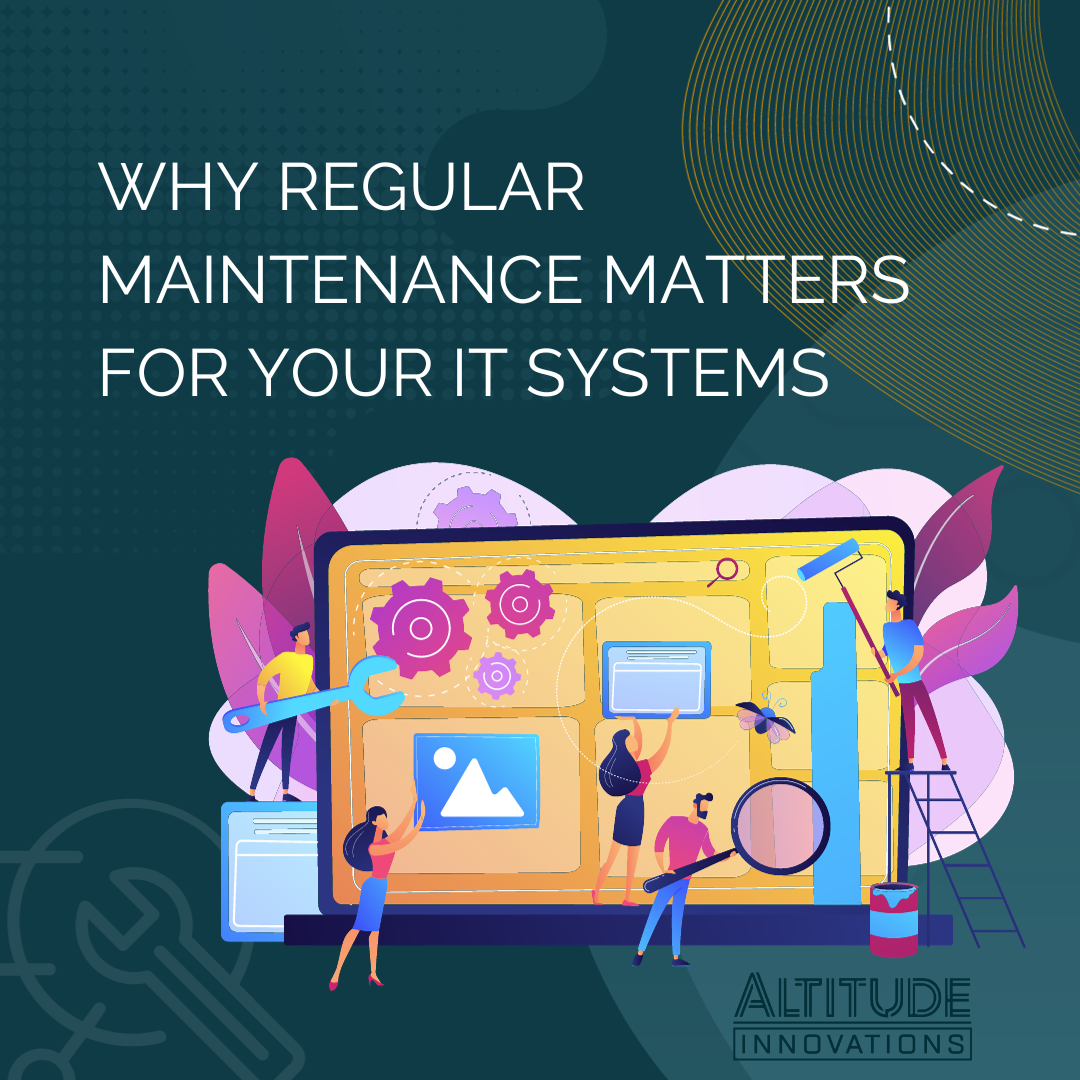Blog
Why Regular Maintenance Matters for Your IT Systems

In today’s rapidly evolving digital landscape, small and medium-sized businesses (SMBs) heavily rely on their IT systems to function efficiently. Whether you’re running a startup, managing a growing enterprise, or overseeing an established company, IT maintenance is the cornerstone of your operational success. In this article, we will delve into the critical importance of regular IT maintenance and why it should be a top priority for anyone with IT systems in their business.
The Significance of IT Maintenance
Imagine your business as a well-orchestrated symphony, where IT systems play the role of the conductor, ensuring everything runs smoothly. From essential email communications to data storage, customer management, and e-commerce platforms, IT systems underpin your day-to-day operations. These systems empower you to connect with clients, streamline internal processes, and maintain a competitive edge within your industry.
The Role of Regular IT Maintenance
Regular IT maintenance encompasses a proactive and strategic approach to keeping your IT infrastructure reliable, secure, and up-to-date. It includes:
- Hardware Maintenance: Routinely inspecting and servicing physical components such as servers, computers, and network equipment to prevent breakdowns and extend their lifespan.
- Software Updates: Keeping operating systems, applications, and security software updated to protect against vulnerabilities and ensure compatibility with emerging technologies.
- Data Protection: Implementing robust data backup and recovery procedures to safeguard critical information and minimise downtime in the event of data loss.
- Cybersecurity Measures: Continuously monitoring and enhancing network security to protect sensitive data from cyber threats and breaches.
- Performance Optimisation: Identifying and resolving performance bottlenecks to maintain efficient IT operations.
- User Support: Providing prompt technical assistance to employees to minimise productivity disruptions.
Now, let’s delve into the top 5 reasons regular IT maintenance is not just essential but also highly beneficial for your business:
- Preventing Costly Downtime – Unplanned IT downtime can wreak havoc on your business operations, resulting in lost revenue and customer dissatisfaction. Regular maintenance helps identify and address issues before they escalate, minimising costly disruptions.
- Enhancing Cybersecurity – In an era of increasing cyber threats, maintaining advanced security protocols and promptly patching vulnerabilities is paramount. Regular IT maintenance strengthens your defences against malicious attacks, protecting your sensitive data and your reputation.
- Boosting Productivity – When your IT systems are well-maintained, your employees can work efficiently without the frustration of slow computers or software glitches. This leads to increased productivity and overall job satisfaction.
- Future-Proofing Your Business – The technology landscape is continually evolving. Regular IT maintenance ensures that your systems remain adaptable and capable of integrating new technologies, keeping your business competitive.
- Long-Term Savings – Although IT maintenance requires an initial investment, it saves your business money in the long run by extending the lifespan of hardware, reducing the risk of expensive emergency repairs, and preventing data loss.
Regular IT maintenance is not an optional task but a strategic imperative for any business with IT systems. It serves as the backbone of your operational efficiency, safeguarding your data, and ensuring seamless productivity. By prioritising IT maintenance, you’re not merely protecting your technology infrastructure; you’re securing the future success and growth of your business in an increasingly technology-driven world. Contact Altitude Innovations today to confirm your IT Maintenance Plan is covering off on the essentials, so that you can prevent the headaches and costly setbacks of tomorrow.
Category
- Alerts & Advisories (10)
- Device Discussions (5)
- Software Solutions (10)
- Technology Tips (16)

